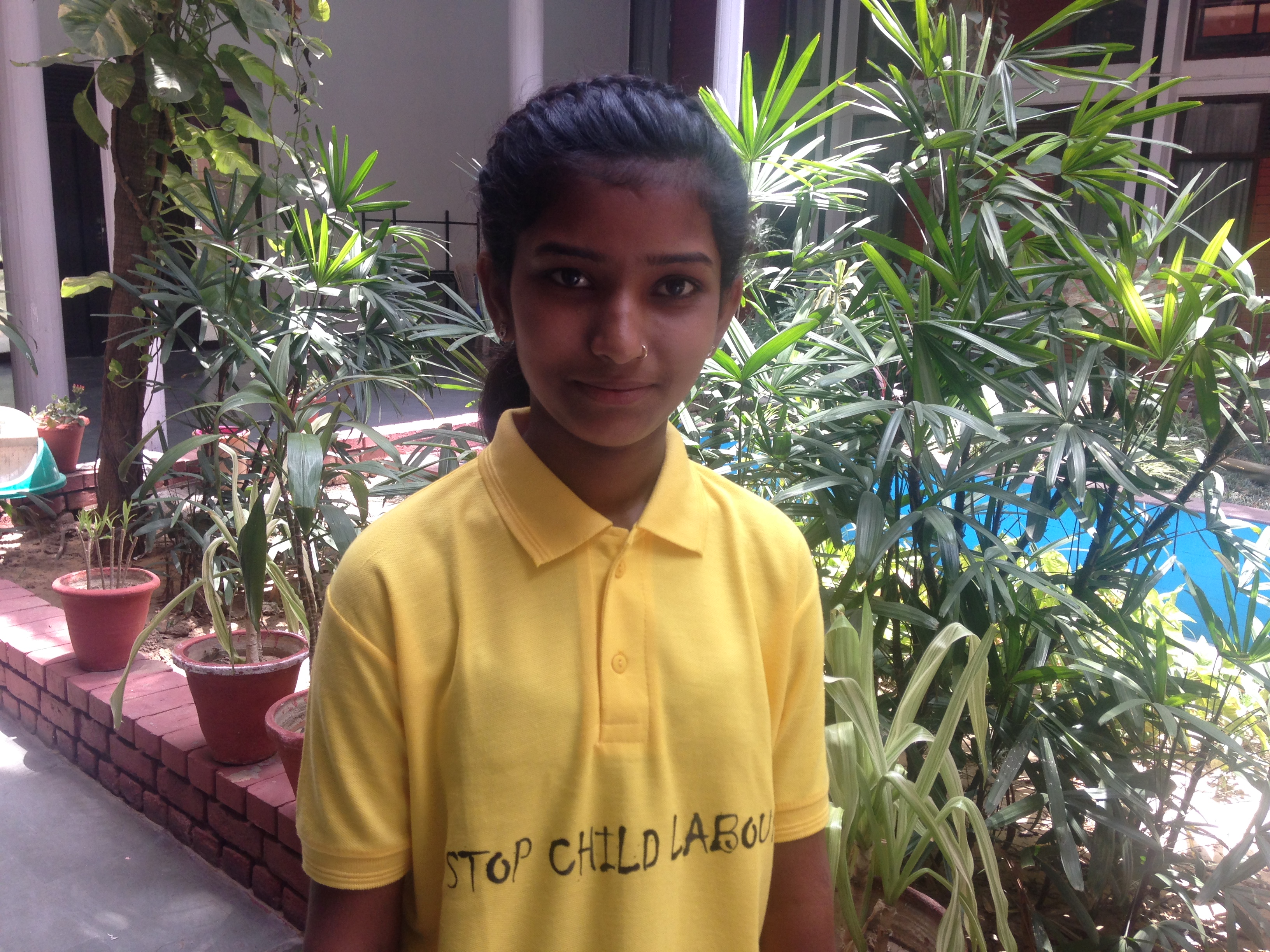When we met Kumari in Delhi — at an event against child labour, organised by the establishers of BMG: Kailash Satyarthi’s Children Foundation (KSCF) — she talks about the time she first went for the meeting organised at the government school near her home. “I saw that some children who used to study in school were going for an election there. I have seen elections for Mukhiya in Gram Panchayat but never for children, so I thought to go and see.” Kumari at the time did not regularly attend school, making it to class about once a week. “The teacher would ask why we didn’t show up and fine us Rs 1 for every day we didn’t go,” she says.
Back at the school, she was asked by an employee of KSCF if she worked as a labourer, “I told him yes, and also that many of my friends work too. After that I campaigned in my area and became a Mukhiya.” She has used her role to free her friends from child labour and also stop child marriages from taking place in her village. “Parents of child labourers would say that I stopped working only a few days ago, and now wanted their child to stop as well? They said they would not relent”, but she continued having discussions and meetings on child labour with parents.
Kumari points to a vital fact about the prevalence of child labour that many parents don’t know it to be illegal. In her own case, her parents were unaware that child labour was wrong. “When we started explaining to the children and their parents, they slowly understood. Then the next year, and after that, when we had elections, our motive was to bring in those children who were still working”. She regards it as a personal triumph that 4-5 children have been admitted to her village primary school. She has even worked to get the problem of water scarcity resolved. And then excitedly talks about intervening to stop an underage girl from getting married.
“A few days back we came to know of a young girl, about 17, who was being married off. So, I went with the NGO volunteer to speak to the family. The mother was adamant that the marriage would take place, because all the preparations had been made. So, I told them that if they didn’t stop, I would send a complaint letter to the sahib.” Boldly adding: “I’m telling you this with such love and you are not listening, then we will have to do something else.” They have fought a lot with people and families of those they seek to rescue. And this in turn brought threats. “Villagers who were annoyed with the activities of the Bal Panchayat, would go to children’s homes and argue with their parents, even threaten them. My parents were also not convinced about my involvement and that I would campaign for 10 days and then stop.” Around the same time, another marriage was going to take place, which Kumari had no idea about. The family of the girl whose marriage had been stopped wrote a letter to the Block-level official about it — making out the complaint in Kumari’s name, she alleges. “The Block official came and asked about who the bride was. He questioned how I did not know about the marriage which was slated for the 16th. I said, if I had known, then why would I not stop this marriage as well, as I have done others?” In this scenario the silver lining is, as she points out, that families are becoming vigilant, “It’s great that if we stop a marriage, that family then gets another child’s marriage stopped. Soon enough all child marriages will stop. Everyone will become aware.” Their efforts, in a way, germinated and gave fruit to other informed people — even if in this case it was born out of resentment. Kumari has done well for others and herself. She recently passed 10th grade and will now move on to 11th. She told us that she will continue her studies and become a teacher in her Block, as “there’s a dearth of female teachers. I want to become a teacher and work here”.
Her parents now are not struggling as much as they did earlier. While they still work at the mica mines, and still live in a mud house, Kumari’s elder brother now works with the Army and sends some money home. Her younger brother who also worked in the mines with her is now studying in 7th grade.
But there are many more like her still waiting to be freed from labour. Koderma, the district where Kumari hails from, is one of the two regions in the country rich in mica, which is exported. It was once even known as the mica capital of India.

